
In the run up to the official release of Ethics and Christian Musicking, I’m going to start a thread, with a quote from a different contributor each day.
Day 1: Marcel Silva Steuernagel argues that the geographical centre of Christian worship has changed, but the geographical centre of its body ethics haven’t. This should lead to a reevaluation of body ethics in music and worship. 

Day 2: Marcel Cobussen considers whether the removal of speech from our sonic environment might lead to a post-human ethical reorientation which fosters a deeper interrelatedness with the non-human in the world around us. 

Day 3: Blenda Im reflects on what it means for breathe to precede encounter – for music to migrate before the people who make it do, and how that opens spaces for different mobilizations of sound in relation to race. 

How does this become an ethical matter? Well, here's one way—as music enables the recognition and remembrance of shared traumas within global patterns of racial and colonial dominance. 

Day 4: Jeff Warren explores the world of "shimmer" reverberation and reflects on how the sounds of worship, and in particular their 'level's affect the way in which we respond to others. 'Things' are able to shape us and have ethical implications for us just like other humans. 
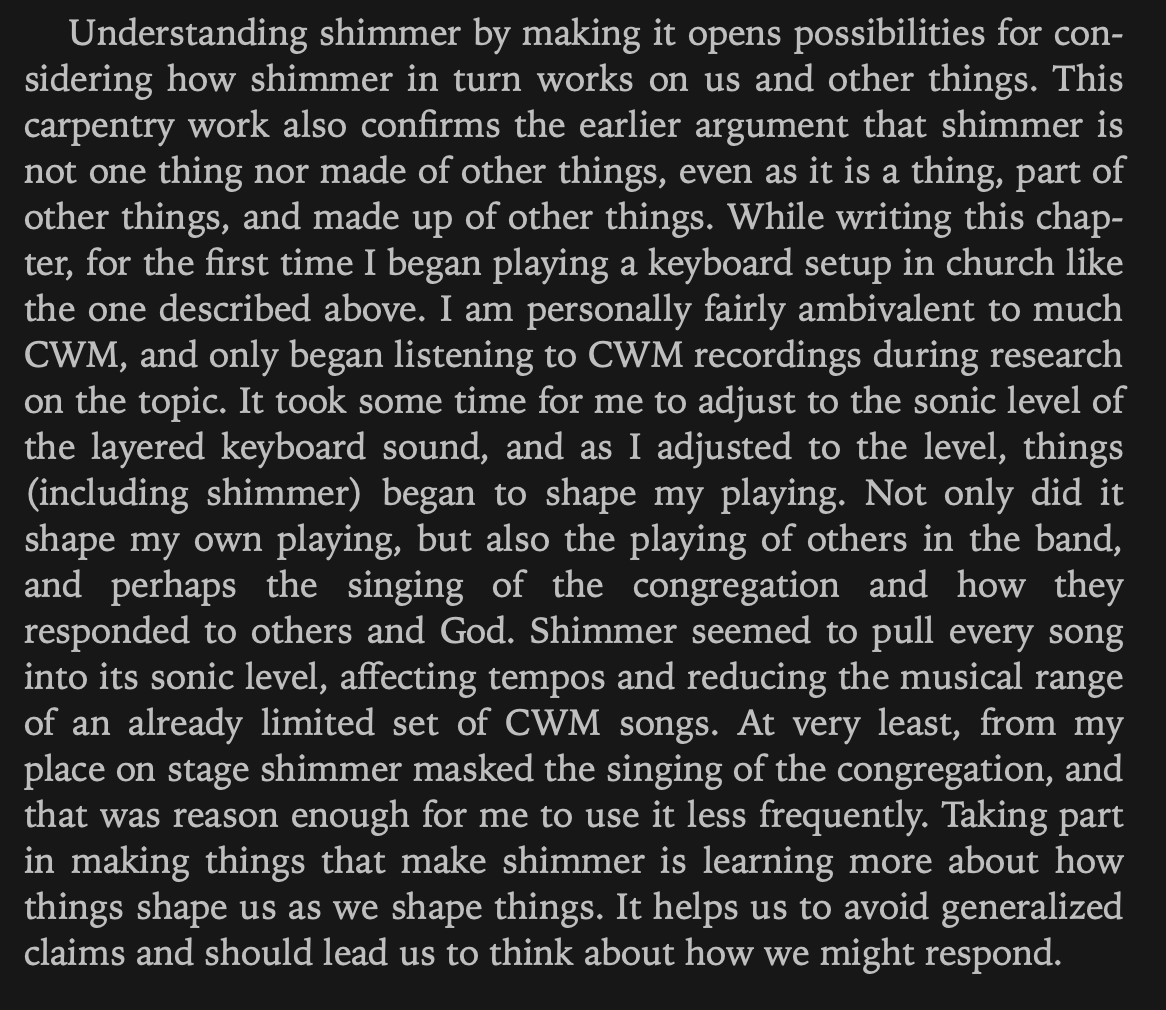
Day 5: @doctorbusman considers the double ethical bind placed on musicians in contemporary evangelical circles to play skillfully, but to do so in an inconspicuous manner. How do they manage these imperatives pulling in different directions? Where does that lead us in the end? 

Day 6: Andrew Mall reflects on the relationship between the music industry and progressive Christian ethics at @WildGooseFest. He is hopeful about the alternative possibilities which the festival embodies but wary of the ever-present pressures of consumer capitalism. 



Day 7: @maggidawn considers the ethics of hymn adaptation. Here, she considers the intertwining of lyrical content with the broader experience of the worshipper, and the ethical responsibilities which those who adapt hymns have to maintaining the integrity of that experience. 

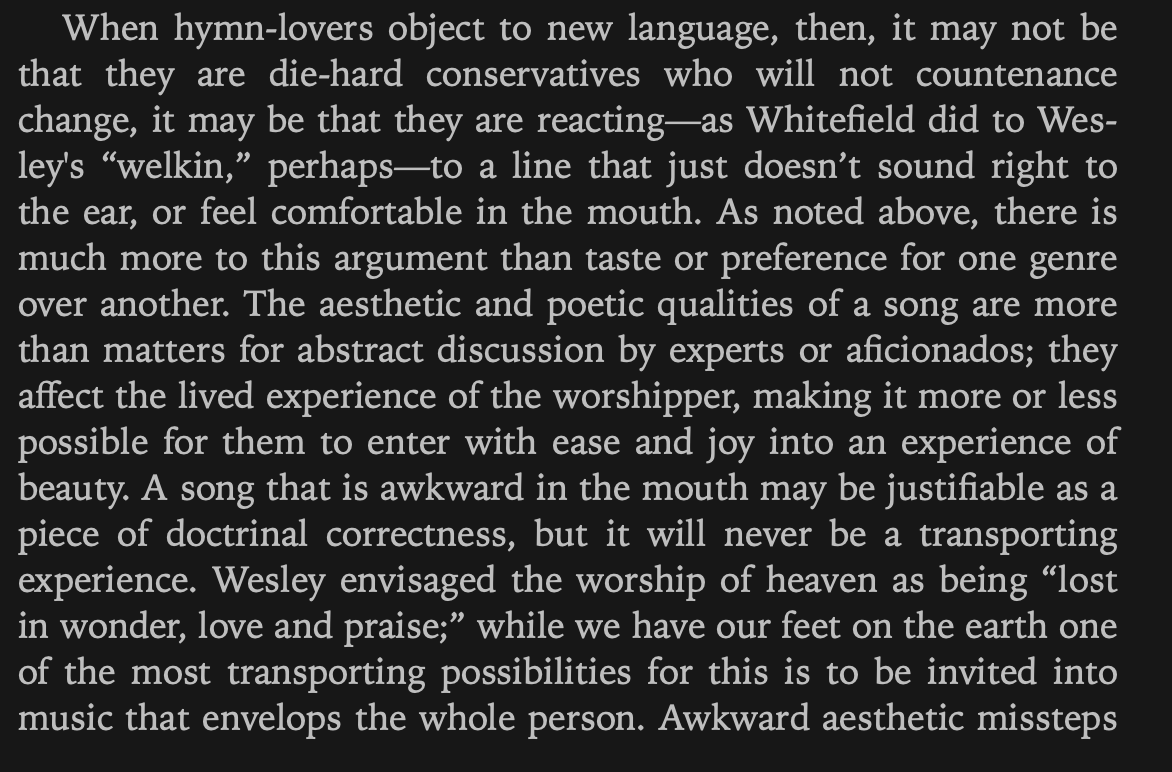

(we're halfway, seven chapters left, and I received a notification in my inbox from Amazon today informing me of the upcoming release)
Day 8: @tanyariches and @theomuso consider some of the complexities of what it means to be "Hillsong and Black". How does music play a role in negotiations of racial inclusion? How do different individuals deploy different attitudes and strategies for managing this intersection? 



With apologies for the overly-long excerpt today—given the range of voices represented in the chapter, a shorter extract felt a little too one-sided
Day 9: Emily Snider Andrews focusses on Bethel church and the connection between Modern Worship Music and an ethical "kingdom" lifestyle. Whilst the connection between worship and an ethical life is often idealised in theory, how does that connection truly play out in practice? 

Day 10: @MurielSR reflects on the interrelation of ethics and aesthetics in her participatory action research facilitating a choir in Hopevale, Northern Queensland and discusses the ethical responsibilities which arose in the course of her engagement with the community 

Day 11: drawing on her own experiences working with the Krista Foundation, @marenhaynes develops a musical ethics of accompaniment which seeks to acknowledge the different identities and perspectives of the individuals who are drawn into a particular musical act 
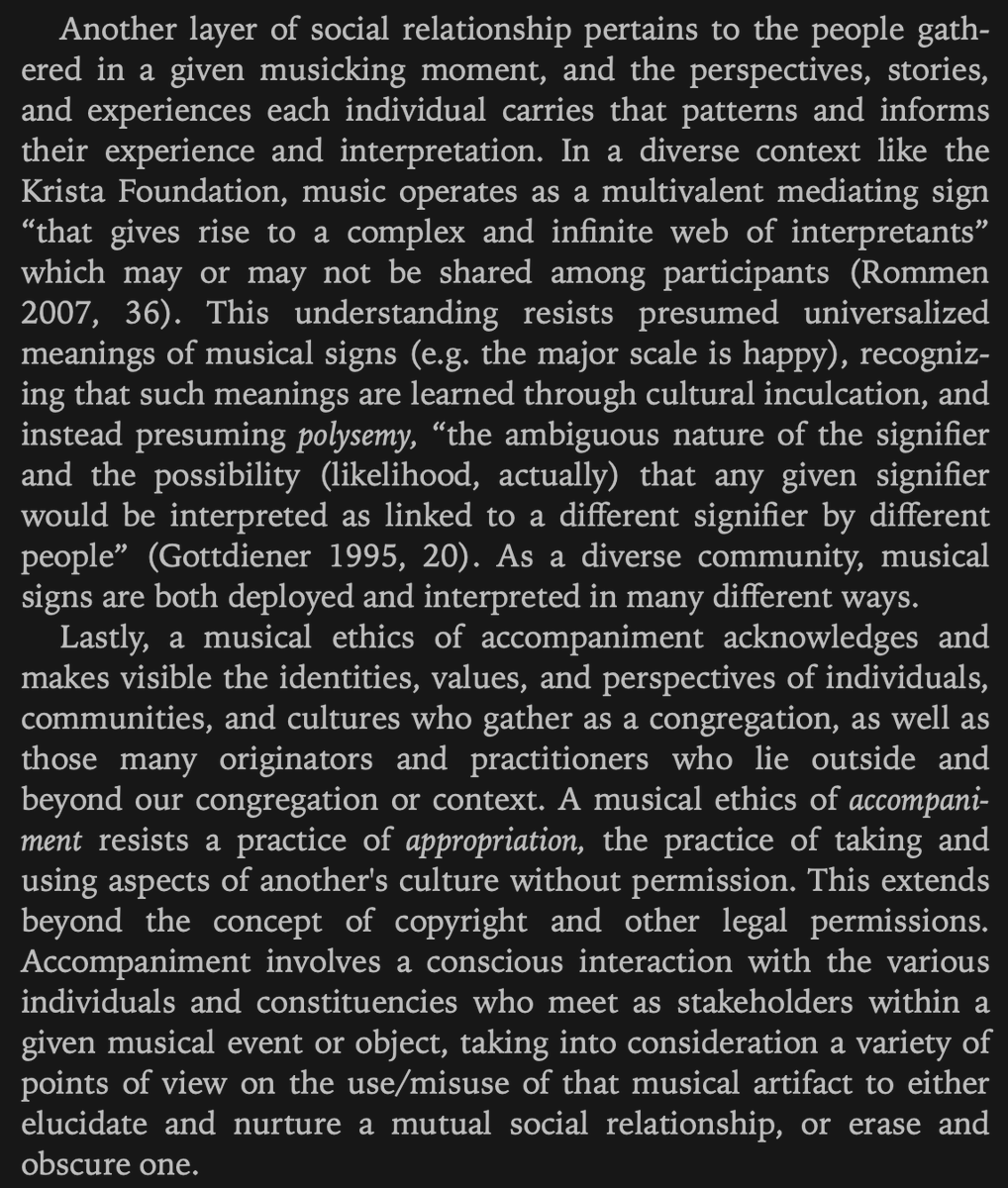
Day 12: @sarahbereza discusses the contrasting ethics of evangelical and fundamentalist vocal expression, writing about fundamentalists' turn away from an ethic of authentic expression on the basis of their own soteriological beliefs 

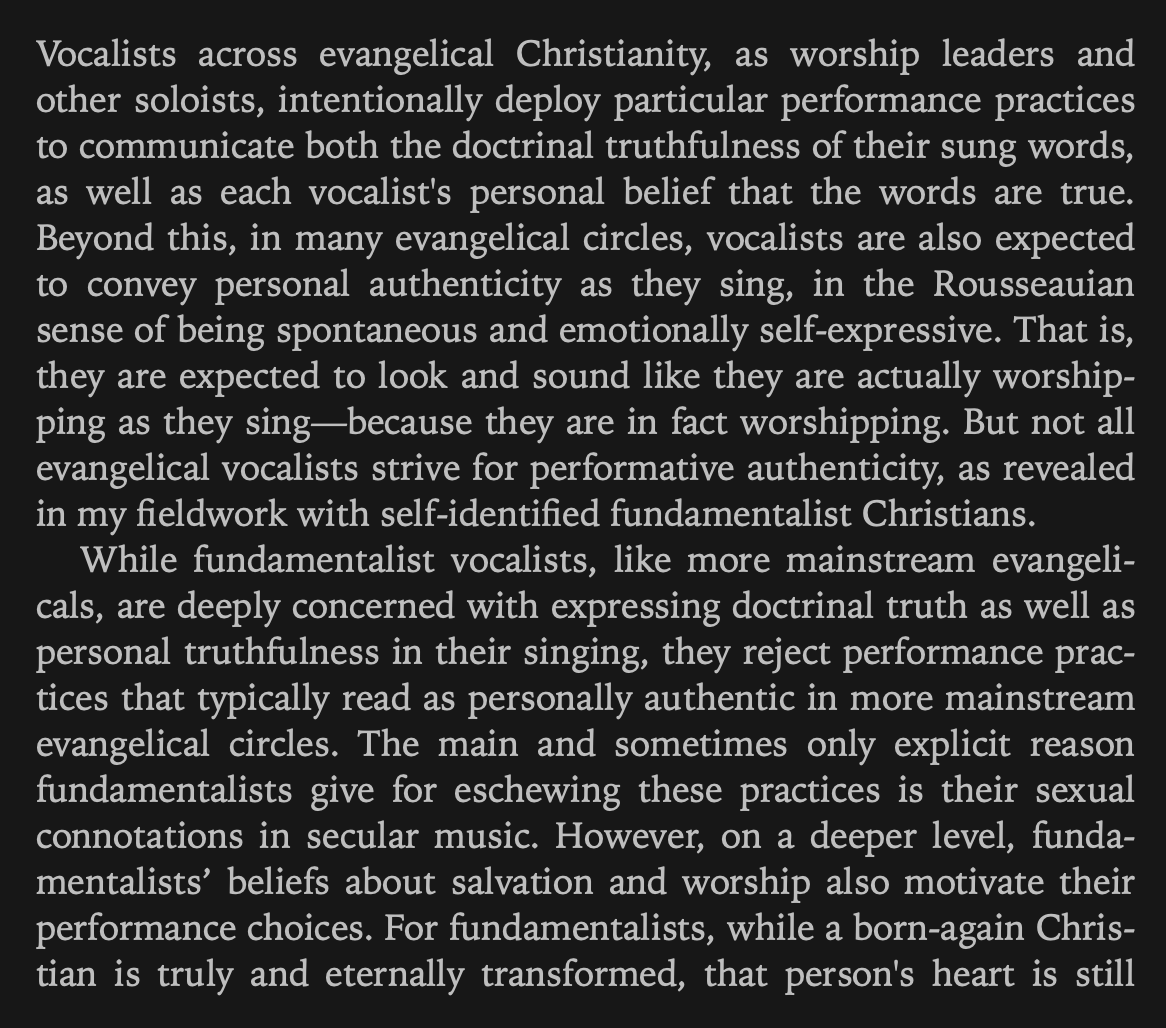
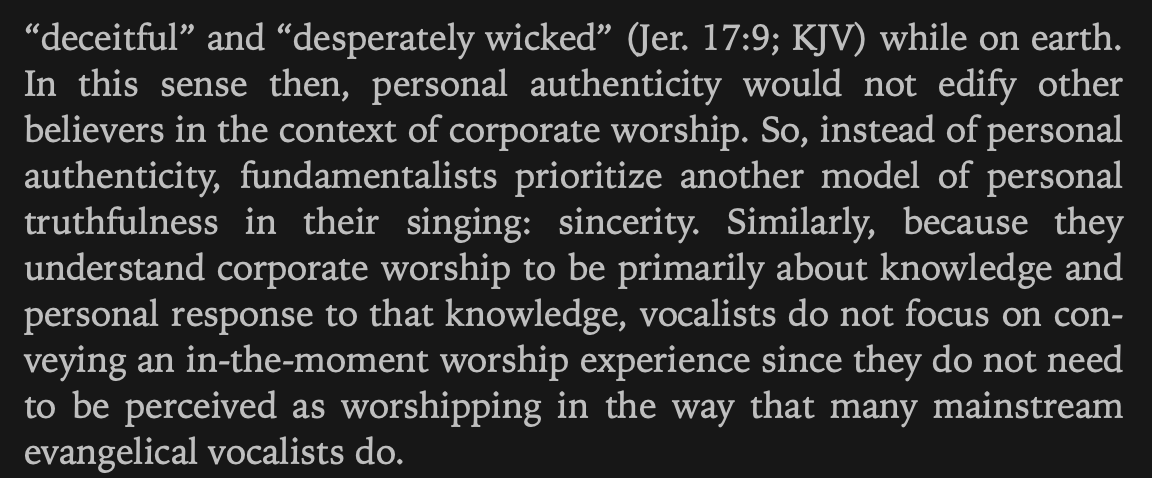
Day 13: @TamishaTyler describes how Beyoncé Mass provides a space of human flourishing for black women, enabling the voicing of experiences not always made audible within the worship of churches 



Day 14: @JNATHANARNOLD1 reflects upon the Oxford Lent Concerts, and the way in which particular performances of classical sacred music can serve to open individuals and communities up to ethical aspects of the human condition 



And, with that, the thread is done. The book is officially released at the start of next week. It is by far the most affordable as ebook via Google/Amazon etc. The contributors are wonderful, and I'm excited for what their work will go on to inspire.
@threadreaderapp please unroll
• • •
Missing some Tweet in this thread? You can try to
force a refresh



